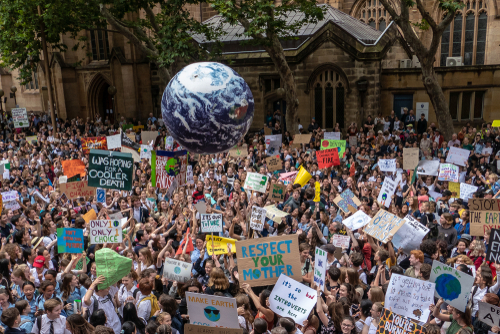Demanding decisive leadership on climate action
The action – and inaction – of G20 members on climate change has repercussions around the world. In this uniquely challenging year, the world needs an equally unique, firm and committed response from G20 leaders to the most severe threat facing us today
Throughout 2020, the world has faced one of its most challenging years in recent memory. The COVID-19 pandemic reached practically every country, threatening the lives of billions of people. The measures adopted by governments and societies to protect people’s health and well-being have led to the most severe global recession in nearly a century, shutting down businesses, destroying jobs and affecting livelihoods.
The challenge has been formidable, but so has the collective response to overcome the pandemic. Governments have placed their confidence in scientific evidence and technical expertise. Medical and healthcare professionals have worked tirelessly to protect the lives of the sick and vulnerable. Businesses have changed their everyday practices to concentrate on the safety of employees and the immediate needs of consumers. Societies have reassessed their priorities, harmonising personal freedom with collective well-being and social responsibility.
Hope for the future
The global response to the pandemic is a source of hope for the future that goes beyond the threat posed by COVID-19. It has highlighted the importance of science to our survival. It has shown that individuals are ready to make personal sacrifices for the benefit of society as a whole. It has proved that countries are ready to pull together for a common cause. Those same principles are needed to overcome the other urgent threat facing humanity: climate change.
Surprisingly, the pandemic has opened a window of opportunity for countries to reshape the 21st-century economy so that people can live in a world that is clean and healthy, safe and just, and, above all, sustainable. The current crisis has given the world a chance to promote innovative and transformative ways of producing, transporting and consuming – in short, a way of living that responds to future needs, not past models.
The United Nations has continued to work throughout the pandemic. The work of the UN Framework Convention on Climate Change was never put on hold, since the climate emergency has not paused for COVID-19. We have carried on our efforts, resorting to every available technology at our disposal to fulfil our responsibilities. We have reminded governments of their duty to submit new or updated Nationally Determined Contributions before the end of the year. We have urged countries to raise, both individually and collectively, their level of ambition in order to achieve carbon neutrality by the middle of the century. We have advocated the adoption of projects that allow for climate adaptation, especially in more vulnerable countries. We have spurred developed countries to live up to their commitment to mobilise $100 billion every year, starting in 2020. Above all, we have continued to call for an economic recovery that is not a return to the past but a leap forward to the future.
During this difficult and challenging year, the UNFCCC has been working vigorously to advance those central priorities in national, regional and global dialogues, reaching out to the public around the world to spread awareness and understanding of the existential threat posed by climate change, and carrying on the essential work from technical committees and working groups. Although it was necessary to postpone the 26th Conference of the Parties, this has not prevented relevant bodies from making progress in each of their crucial responsibilities.
Much has been achieved over the past year, yet much remains to be done. The multilateral approach acknowledges the different responsibilities and capacities of countries, while providing a pathway to address the climate emergency globally. Two years ago, in Katowice, the global community laid down a solid foundation to implement the Paris Agreement, including rules to measure and report on efforts to cut emissions. There remain, however, pending issues that will need to be addressed during COP 26, particularly those that relate to cooperation among countries.
The G20’s role
The G20’s Riyadh Summit is an opportunity for key global leaders to reaffirm their commitment to climate action and to lead by example. G20 countries account for nearly three quarters of global greenhouse gas emissions. They are also responsible for much of the innovative thinking that can provide solutions in industry and technology to the mounting problems caused by climate change.
The international community looks to the G20 to lead on some of the most important changes that must take place: energy transformation, decarbonisation, financial innovation to redirect the global economy towards a sustainable future and alignment of the private sector to the Paris Agreement.
The action – and, indeed, the inaction – of G20 members has repercussions around the world. The world needs clear, decisive and unambiguous leadership in addressing climate change and promoting a green economy. The G20 is ideally positioned to provide it.
Addressing climate change demands a profound transformation of economic models and social mores. Each country must embrace new ways of working, travelling and living. This change needs to start now, not in the distant or even the near future. In this uniquely challenging year, the international community expects an equally unique, firm and committed response from G20 leaders to the most severe threat facing the world today.












